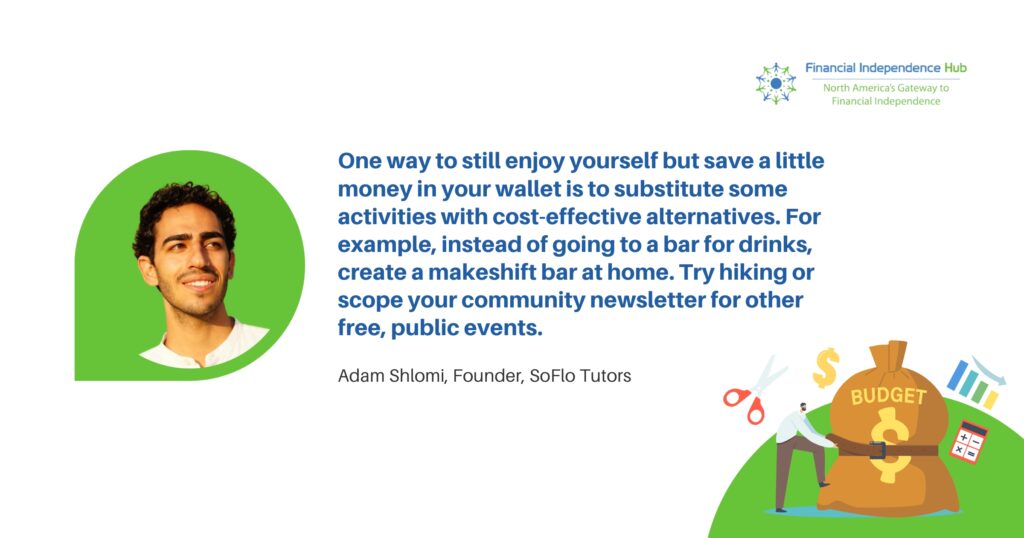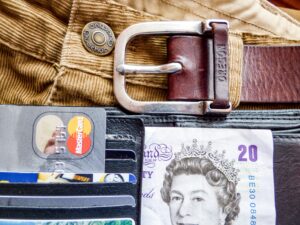
Plenty of press this week over a BMO survey that found Canadians now believe they’ll need $1.7 million to retire, compared to just $1.4 million two years ago (C$). The main reason for the higher nest-egg target is of course inflation.
As you’d expect, the headline of the story alone attracted plenty of media attention. I heard about it on the car radio listening to 102.1 FM [The Edge]: there, a female broadcaster who was clearly of Millennial vintage deemed the $1.7 million ludicrously out of reach, personalizing it with her own candid confession that she herself hasn’t even begun to save for Retirement. Nor did she seem greatly fussed about it.
Here’s the Financial Post story which ran in Wednesday’s paper: a pick-up of a Canadian Press feed; a portion is shown to the left. The writer, Amanda Stephenson, quoted BMO Financial Group’s head of wealth distribution and advisory services Caroline Dabu to the effect the $1.7 million number says more about the country’s economic mood than about real-life retirement necessities.
BMO’s own client experience finds that “many overestimate the number that they need to retire,” she told CP, “It really does have to be taken at an individual level, because circumstances are very different … But $1.7 million, I would say, is high.”
Here’s my own take and back-of-the-envelope calculations. Keep in mind most of the figures below are just guesstimates: those who have financial advisors or access to retirement calculators can get more precise numbers and estimates by using those resources. I may update this blog with input from any advisors or retirement experts reading this who care to fill in the blanks by emailing me.
A million isn’t what is used to be

Back in the old days, a million dollars was considered a lot of money, even if that amount today likely won’t get you a starter home in Toronto or Vancouver. This was highlighted in one of those Austin Powers movies, in which Mike Myers (Dr. Evil) rubs his hands in glee but dates himself by threatening to destroy everything unless he’s given a “MILLL-ion dollars,” as if it were an inconceivably humungous amount.
The quick-and-dirty calculation of how much $1 million would generate in Retirement depends of course on your estimated rate of return. When interest rates were near zero, this resulted in a depressing conclusion: 1% of $1 million is $10,000 a year, or less than $1,000 a month pre-tax. When my generation started working in the late 70s, a typical entry-level job paid around $12,000 a year so you could figure that $1 million plus the usual government pensions would get you over the top in retirement.
Inflation has put paid to that outcome but consider two rays of hope, as I explained in a recent MoneySense Retired Money column. To fight inflation, Ottawa and most central banks around the world have hiked interest rates to more reasonable levels. Right now you can get a GIC paying somewhere between 4% and 5%. Conservatively, 4% of $1 million works out to $40,000 a year. 4% of $1.7 million is $68,000 a year. That certainly seems to be a liveable amount. More so if you have a paid-for home: as I say in my financial novel Findependence Day, “the foundation of Financial Independence is a paid-for home.”
Couples have it easier
If you’re one half of a couple, presumably two nest eggs of $850,000 would generate the same amount: for simplicity we’ll assume a 4% return, whether in the form of interest income or high-yielding dividend stocks paid out by Canadian banks, telecom companies or utilities. I’d guess most average Canadians would use their RRSPs to come up with this money.
This calculation doesn’t even take into consideration CPP and OAS, the two guaranteed (and inflation-indexed) government-provided pensions. CPP can be taken as early as age 60 and OAS at 65, although both pay much more the longer you wait, ideally until age 70. Again, couples have it easier, as two sets of CPP/OAS should add another $20,000 to $40,000 a year to the $68,000, depending how early or late one begins receiving benefits.
This also assumes no employer-pension, generally a good assumption given that private-sector Defined Benefit pensions are becoming rarer than hen’s teeth. I sometimes say to young people in jest that they should try and land a job in either the federal or provincial governments the moment they graduate from college, then hang on for 40 years. Most if not all governments (and many union members) offer lucrative DB pensions that are guaranteed for life with taxpayers as the ultimate backstop, and indexed to inflation. Figure one of these would be worth around $1 million, and certainly $1.7 million if you’re half of a couple who are in such circumstances.
Private-sector workers need to start RRSPs ASAP
But what if you’re bouncing from job to job in the private sector, which I presume will be the fate of our young broadcaster at the Edge? Then we’re back to what our flippant commentator alluded to: if she doesn’t start to take saving for Retirement seriously, then it’s unlikely she’ll ever come up with $1.7 million. In that case, her salvation may have to come either from inheritance, marrying money or winning a lottery.
For those who prefer to have more control over their financial future, recall the old saw that the journey of a thousand miles begins with a single step. In Canada, that step is to maximize your RRSP contributions every year, ideally from the moment you begin your first salaried job. Divide $1.7 million by 40 and you get $42,400 a year that needs to be contributed. OK, I admit I’m shocked by that myself but bear with me. The truth is that no one even is allowed to contribute that much money every year into an RRSP. Normally, the limit is 18% of earned income and the 2023 maximum RRSP contribution limit is $30,780 (and $31,560 for the 2024 taxation year.) Continue Reading…






